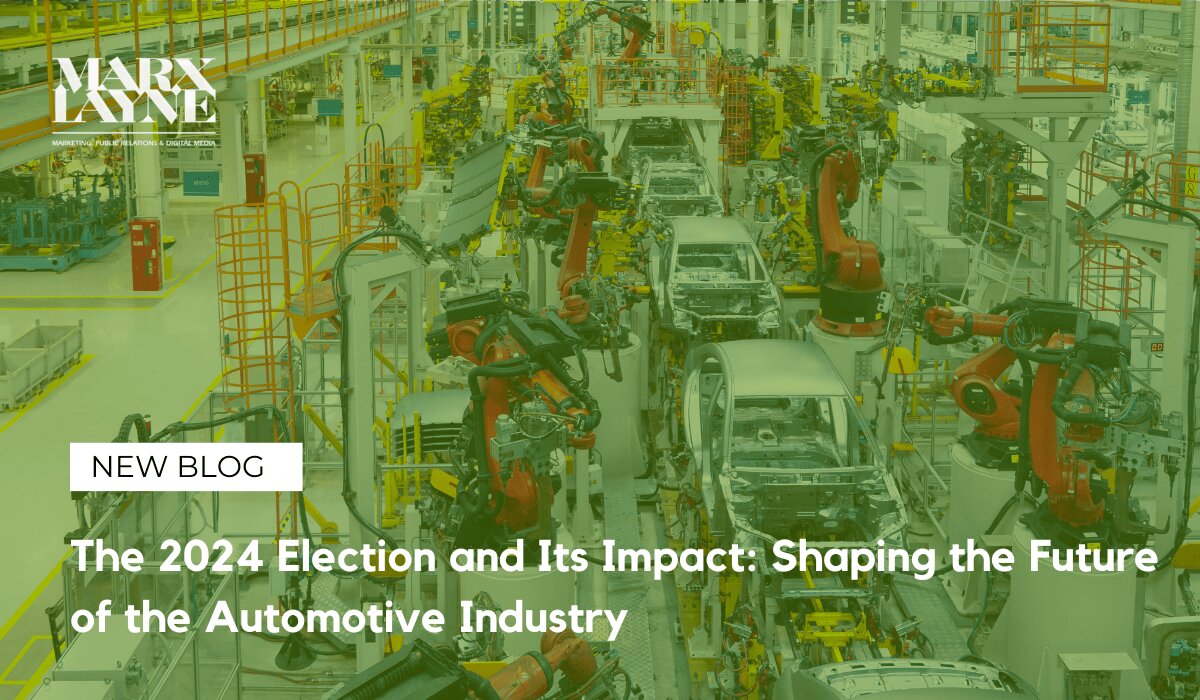
January 10, 2024
The 2024 Election and Its Impact: Shaping the Future of the Automotive Industry
The 2024 election will be a pivotal moment in shaping the trajectory of many industries, including the automotive sector. As political dynamics evolve, key policy decisions and initiatives could significantly influence the automotive landscape [...]
The 2024 election will be a pivotal moment in shaping the trajectory of many industries, including the automotive sector. As political dynamics evolve, key policy decisions and initiatives could significantly influence the automotive landscape for the next decade.
With increasing global pressures on addressing climate change, environmental policies are likely to again take center stage in the 2024 election. The outcome could determine the extent of government support for the automotive industry’s transition towards sustainability, particularly the production and adoption of electric vehicles (EVs). Candidates’ positions on incentives, charging infrastructure, and emission standards will directly impact the automotive sector’s green initiatives. If anything was learned in the past four years (especially because of the pandemic), it is that government mandates don’t work. Automotive consumers (e.g., voters) will ultimately determine the success (or failure) and overall timeline of this grand transition. Consumer demands have been clear: bring down purchase price, make charging ubiquitous, make it fast (like in minutes), make range equivalent to ICE vehicles, and make reliability consistent (i.e., no drastic drop in range when towing, in cold weather, or other variables). This is a heavy lift and there is a long way to go.
The outcome of the next election will also play a crucial role in determining the level of investment in infrastructure projects. A commitment to upgrading and expanding transportation infrastructure, including roads and bridges, could stimulate demand for vehicles and impact the automotive supply chain. Conversely, a lack of investment could pose challenges for manufacturers and hinder industry growth. A few key areas include:
- Trade Policies and Global Supply Chain Resilience: The 2024 election will influence trade policies that, in turn, impact the global automotive supply chain. Candidates’ stances on international trade agreements and partnerships will be critical, especially considering the industry’s reliance on a complex network of suppliers. A shift in trade dynamics could necessitate strategic adjustments for automakers to maintain supply chain resilience.
- Autonomous and Connected Vehicles: The development and deployment of autonomous and connected vehicles represent a significant technological frontier for the automotive industry. Political decisions regarding regulations, safety standards, and investment in research and development could either accelerate or impede the progress of these technologies. The 2024 election outcome may shape the regulatory landscape for self-driving and connected vehicles.
- Labor and Workforce Policies: The automotive industry’s workforce and labor practices may be impacted by policies related to wages, workers’ rights, and unionization. Candidates’ positions on these matters could influence production costs, labor relations, and overall workforce stability within the industry.
As voters and industry stakeholders gear up for this year’s election, the automotive sector stands at a crossroads. Policy decisions made in the aftermath of the election will undoubtedly shape the industry’s trajectory for the next decade or more.
Whether it be environmental commitments, infrastructure investments, trade policies, advancements in technology, or labor considerations, the election’s outcome will be a critical factor in determining how the automotive industry evolves and adapts to the challenges and opportunities of the future. Stakeholders should closely follow the candidates’ positions and policy proposals to anticipate and prepare for the transformative changes that lie ahead.
Share This Story, Choose Your Platform!
Marx Layne is your competitive advantage.
Your reputation and success are our only concerns.
